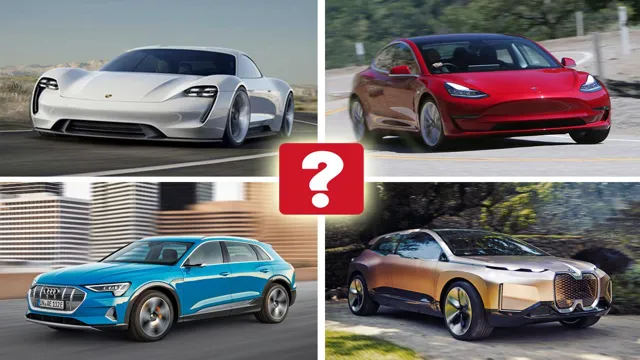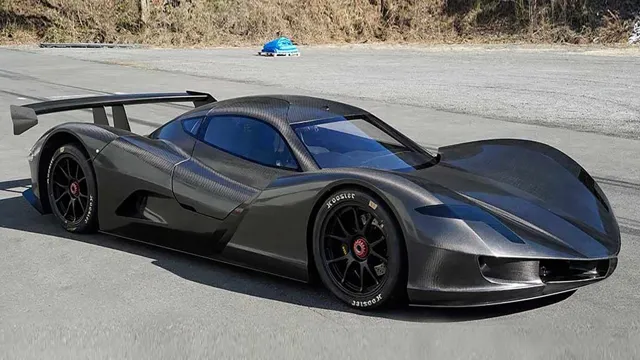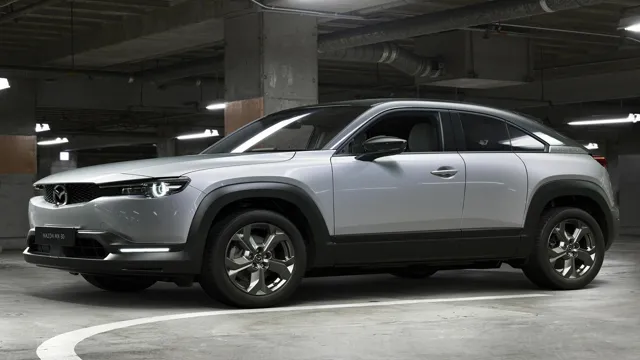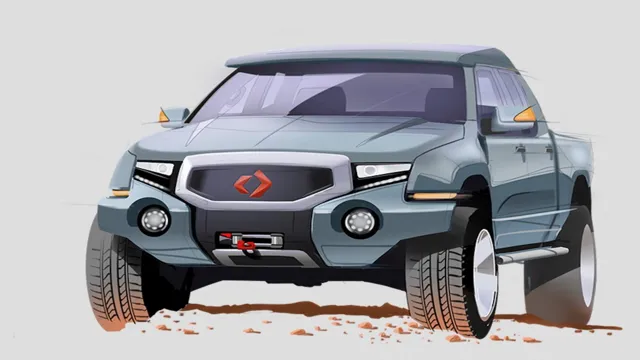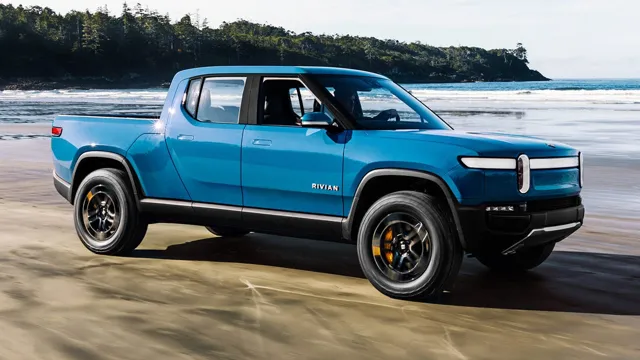Rev Up Your Knowledge: Latest Buzz on Electric Cars and Sustainable Transportation.
Are you curious about the latest advancements in the world of electric cars? Well, you’re in luck because we’ve got you covered! The electric car industry has been booming in recent years, with new models and features being introduced all the time. From Tesla’s Model S to Ford’s Mach-E, there are now more options than ever when it comes to going electric. But what exactly makes these cars so special? For starters, they’re much more environmentally friendly than traditional gas-powered vehicles.
Electric cars produce zero emissions, which means they don’t contribute to air pollution or global warming. Plus, they’re incredibly efficient, with some models offering a range of over 300 miles on a single charge. Of course, there are still some concerns when it comes to electric cars.
One of the biggest issues is the availability of charging stations. While there are more and more charging stations being installed every day, they’re still not as widely available as gas stations. Additionally, the cost of electric cars can be prohibitive for some people, although this is changing as more affordable models hit the market.
So, what’s on the horizon for electric cars? Well, we can expect to see even more exciting developments in the coming years. Companies like Tesla are working on developing fully autonomous cars that can drive themselves, while others are experimenting with new battery technologies to make charging faster and more efficient. All in all, it’s an exciting time for electric cars, and we can’t wait to see what comes next!
Statistics and Trends
If you’re looking for the latest news on electric cars, look no further than the statistics and trends surrounding this innovative form of transportation. Electric vehicles (EVs) are becoming increasingly popular, with sales growing by over 70% in 2020 alone. This trend is expected to continue in the coming years, thanks in part to the development of more affordable models and improvements in battery technology.
In fact, some experts predict that EVs will account for over 50% of new car sales by 2030. There are also growing concerns over the environmental impact of fossil fuels, which is driving many consumers to switch to EVs. Of course, there are still some challenges facing the widespread adoption of EVs, such as the limited range of some models and the need for more charging infrastructure.
However, with continued investment and innovation, it’s likely that these issues will be addressed in the near future. overall, the future of electric cars looks bright, and it’s an exciting time to be a part of this rapidly evolving industry.
Sales growth of electric cars by country
Electric cars have been gaining popularity worldwide, and statistics show that their sales are increasing rapidly year by year. In 2021, China had the largest sales of electric cars, with approximately 2 million units sold, while Europe followed with over 900,000 units sold.
The United States is also witnessing a surge in electric car sales, with about 500,000 units sold in 202 This growth can be attributed to several factors, including the increasing awareness of climate change and the need to reduce emissions, government incentives, and innovations in the electric car sector. As more people switch to electric cars, it is expected that sales will continue to rise in the coming years, leading to a sustainable and greener future.
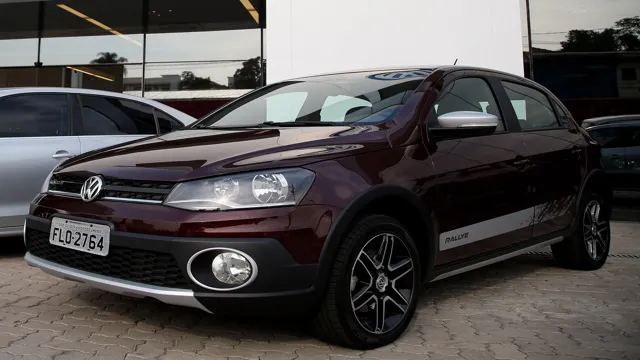
Top electric car models for 2021
Electric cars have been increasingly popular over the years, and 2021 has brought a new wave of impressive models. One of the top electric car models for 2021 is the Tesla Model 3, which has dominated the electric vehicle market for several years. Its impressive performance, long-range capabilities, and sleek design set it apart from other electric cars on the market.
Another electric car model worth considering is the Volkswagen ID.4, which offers an impressive range of up to 250 miles on a single charge. The Ford Mustang Mach-E is another contender, with impressive acceleration, a spacious interior, and a sleek exterior design.
The burst in electric cars’ popularity can be attributed to various factors, including the global push towards sustainability and eco-friendliness, advancements in technology, and tax incentives and rebates offered by governments. As such, it’s not surprising that these electric car models are receiving high praise and are expected to continue dominating the market in 2021 and beyond.
Environmental Impact
If you’re interested in electric cars, you’re in for some exciting news! The rise of electric vehicles is helping to reduce the negative environmental impact of traditional gas-powered vehicles. Electric cars are much more efficient in converting energy into motion, which means they produce far fewer greenhouse gas emissions than gasoline-powered vehicles. Plus, there are many more renewable energy sources available to power electric cars, such as solar and wind power.
The increasing popularity of electric cars is bringing about a much-needed change in the way we approach transportation. As electric cars become more affordable and widespread, we’re on our way to achieving a sustainable future for both ourselves and our planet. So keep your eyes peeled for more news on electric cars – we’re sure to see some exciting developments in the years ahead!
Benefits of electric cars to the environment
Electric cars have the potential to greatly benefit the environment in a number of ways. Perhaps the most significant aspect of environmentally-friendly driving is the reduction of air pollution. Traditional gasoline-powered vehicles generate a number of harmful emissions, such as carbon dioxide and nitrogen oxide, which contribute to smog, acid rain, and other environmental damage.
In contrast, electric cars produce zero emissions, meaning they leave no harmful pollutants behind. Additionally, electric cars can also help reduce greenhouse gas emissions, as they don’t rely on fossil fuels. This can help mitigate the impacts of climate change, which is one of the greatest environmental challenges humanity faces today.
By choosing to drive an electric car, individuals can play an important role in protecting the planet for future generations.
Electric cars vs gas-powered cars
When comparing electric cars and gas-powered cars, one of the biggest factors to consider is the environmental impact. Gas-powered cars emit harmful greenhouse gases that contribute to climate change, while electric cars release zero emissions. This means that electric cars are much friendlier to the environment than gas-powered cars.
Additionally, electric cars can be charged using renewable energy sources like solar power, further reducing their carbon footprint. On the other hand, gas-powered cars require the drilling and extraction of fossil fuels, which have a significant impact on the environment. It’s clear that when it comes to the environment, electric cars are the more sustainable choice.
By making the switch to electric, we can reduce our carbon footprint and contribute to a cleaner, healthier planet.
Impact of electric cars on air pollution and greenhouse gas emissions
The environmental impact of electric cars is significant, particularly when it comes to air pollution and greenhouse gas emissions. Unlike gas-powered cars, electric cars produce zero emissions from their tailpipes, reducing harmful pollutants that can lead to respiratory problems and other health issues. Additionally, electric cars contribute less to the overall carbon footprint because they rely on clean energy sources like solar, wind, and hydropower, which produce far fewer greenhouse gas emissions than traditional fossil fuels.
As more people switch to electric cars, the potential to combat climate change and create a healthier environment becomes greater. It’s one of the reasons why many countries and cities are mandating the transition to electric vehicles in the coming years. While there may be some growing pains along the way, the long-term benefits of reducing air pollution and greenhouse gas emissions will be worth it.
Infrastructural Developments
Exciting news in the world of electric cars! Infrastructural developments are making it easier and more convenient than ever to own and operate an electric vehicle. With more and more charging stations popping up in unexpected places, range anxiety is becoming less of a concern for drivers. Additionally, advancements in battery technology are making electric cars more efficient, allowing for longer ranges and shorter charging times.
This means that electric cars are becoming a more practical option for those with longer commutes or who frequently take road trips. It’s an exciting time to be a part of the electric car movement and it’ll be fascinating to see what new developments will come next.
Upcoming charging stations and networks
As the demand for electric cars rises, so does the need for more charging infrastructure. Luckily, companies are stepping up to the plate and making strides to build a more robust charging network for EVs. ChargePoint, for example, is planning to build
5 million EV charging stations by 2025, while Tesla plans to expand their Supercharger network to 20,000 chargers globally. Governments are also joining in with initiatives like the European Green Deal, which aims to install 1 million public charging points by 202 These developments will not only make it easier for electric vehicle owners to travel longer distances but also promote the adoption of electric transportation overall.
As more charging stations become available, more people will be willing to make the switch to an EV, knowing they can charge up wherever they go. This shift will undoubtedly help to curb carbon emissions and pave the way for a more sustainable future.
Updates on battery technology advancements
Battery technology has come a long way in recent years, with increased efficiency and longer-lasting batteries being developed regularly. However, these advancements are not only limited to the batteries themselves but also extend to the infrastructure necessary to support them. One significant infrastructural development is the expansion of charging networks, making electric vehicles (EVs) more accessible to the general public.
Governments around the world are investing in charging stations, and private companies are also offering charging services to cater to the growing electric vehicle market. This development is essential as it relieves the anxiety of EV drivers who are worried about running out of power while on long journeys. Moreover, some companies have also developed ultra-fast charging technology that allows EVs to recharge within minutes, making EVs more practical and convenient than ever before.
With these infrastructural developments, the electric car revolution is becoming more widespread, which would lead to a more sustainable future.
The Future of Electric Cars
If you haven’t been keeping up with the news on electric cars, you might be surprised to know how much progress has been made in making these vehicles more efficient and accessible. The future looks bright for electric cars, with manufacturers investing heavily in developing new technologies that promise to extend range, reduce charging times, and enhance overall performance. We’re seeing an increasing number of electric cars on the road, and with the increasing availability of charging infrastructure, it’s easier than ever to make the switch to electric.
From sleek sports cars to family-friendly SUVs, there’s an electric vehicle out there for every need. With the potential to reduce emissions and save money on fuel costs, it’s no wonder that more and more people are considering electric cars as a viable option for their next ride. So if you’re still driving a gas guzzler, maybe it’s time to consider making the switch to an electric vehicle and join the growing community of eco-conscious drivers.
Conclusion
In conclusion, it seems that the future is shockingly bright for electric cars. With innovation and investment driving the industry forward, it won’t be long until we see more Teslas and other electric vehicles zooming silently down our roads. It’s not just a matter of being environmentally conscious anymore; electric cars offer a sleek, efficient, and futuristic driving experience that’s becoming more accessible and affordable every day.
So whether you’re a tree-hugger or just a gearhead looking to stay ahead of the curve, there’s no better time to plug in and join the electric revolution!”
FAQs
What are some recent developments in the electric car industry?
Several major car manufacturers, including Tesla and Chevrolet, have released new electric car models in the past year.
How do electric cars compare to traditional gasoline-powered cars in terms of performance?
While electric cars may have a shorter range and longer recharge times, they often have better acceleration and are more energy-efficient overall.
What are some of the environmental benefits of using an electric car?
Electric cars produce less carbon emissions and other pollutants, which helps reduce air pollution and combat climate change.
What is the state of the electric car charging infrastructure in the United States?
While there are a growing number of charging stations in the US, there are still some gaps in coverage, particularly in rural areas. Efforts are being made to expand the network of charging stations nationwide.
